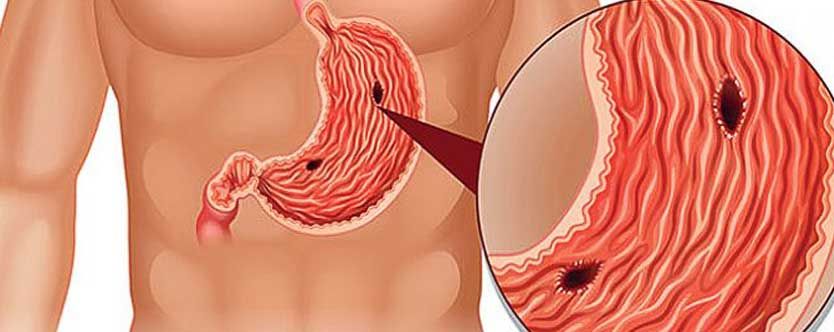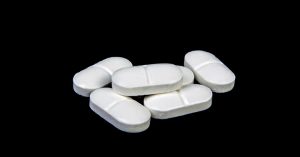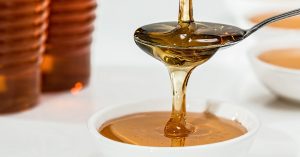
Is Acidity The Cause of Ulcers?
Ulcers are a disease caused by a bacteria called Helicobacter pylori (H. pylori). This bacteria produces certain substances that weaken the mucous lining causing a burning sensation in the stomach. Acidity, on the other hand, occurs when the lower esophageal sphincter (LES), located between the esophagus and the stomach, weakens and causes a burning sensation. Not many know that chronic acidity is a major risk factor for ulcers.
What are Ulcers?
They are soars in the protective lining of the duodenum – the upper part of the small intestine – or the stomach. Both these areas come into contact with the stomach acids and enzymes.
Types of Ulcers
Peptic ulcers and duodenal ulcers are the common types that take place in the gastro-esophageal tract. While peptic ulcers take place in the stomach, the duodenal ulcers take place in the duodenum or the upper part of the small intestine. The rare ones are esophageal ulcers, which are often a result of exposure to medications, like certain antibiotics, or alcohol abuse. Ulcers can also occur on the skin and are known as blisters. They cause the skin to turn red, resulting in pain when touched or pressed. They can be treated, but you should consult a doctor if you experience excessive stomach pain.
Managing an Ulcer and Acidity
The Two Conditions
Many people think there is a connection between acidity and ulcers. But that is not the case. They have separate causes, symptoms, and treatments. While acidity is a disorder of the LES, an ulcer is a condition caused either by H. pylori or the use of non-steroidal anti-inflammatory drugs (NSAIDs).

Signs and Symptoms
ACIDITY
- Burning feeling in the breast bone
- Croaky or a sore throat
- Difficulty in swallowing food
- These symptoms increase when eating
ULCERS
- Pain between the bottom of the breastbone and the navel
- Nausea
- Vomiting
- Stools
- Bloating
- Weight loss
- Heartburn
Treatment
If you have symptoms of both acidity and ulcers, but the acidity is troubling you more, you must treat yourself for acidity first. But if there is a big ulcer, it must seek treatment for the ulcer first, despite the severity of acidity symptoms. Proton pump inhibitors (PPIs), histamine receptor blockers, and protectants can help the ulcer heal. They can also be diagnosed by endoscopy, where the doctor puts a thin microscope down the esophagus into the stomach to look inside and take a sample tissue from the ulcer.
Test to Detect H. pylori

Doctors conduct the C14 breath test to detect H. pylori infection. You have to swallow a small amount of radioactive carbon (C14). Then they test the air you exhale from the lungs to detect the presence of the bacteria. People who take aspirin or other anti-inflammatory medications are at a higher risk even if they do not have H. pylori infection.
What Causes Ulcers?
When you eat, the stomach produces hydrochloric acid and an enzyme called pepsin that helps to digest the food. The food digestion takes place in the stomach first and then it moves on to the duodenum. Peptic ulcers occur when the acid and enzyme overcome the defense mechanisms of the gastrointestinal tract. Earlier, it was thought that ulcers were caused lifestyle factors such as eating habits, smoking, and stress. But now we have come to know that it is due to an imbalance between the acid and pepsin, along with the digestive tract’s inability to protect itself from these harsh substances. Elderly people suffering from arthritis are more vulnerable. Heredity also plays a major role.
Home Remedies
The treatment involves relieving the irritation so that healing progresses naturally. Antacids give relief from ulcer irritation, but they can also cause complications in the long run. Thus, opt for home remedies. Here are some of them:
Honey: Honey works due to its antibacterial properties. It retains moisture and prevents your mouth from turning dry. You can apply raw honey to the ulcer directly or even add a pinch of turmeric to it; it heals faster.

Avoid spicy foods: Spicy and fried foods can bother some people having ulcers. If are eating spicy meals you suffer from a severe pain, avoid them.
Mulethi powder: For stomach ulcers, Mulethi powder works wonders. Eat it with water or honey. It removes the toxins in the stomach that could be one of the causes.
Triphala: Triphala aids digestion as it improves the absorption of food in the intestines, especially in the duodenum.
Aloe vera juice: Drinking aloe vera juice is good as it can cure stomach ulcers, thanks to its anti-inflammatory properties.
Conclusion
Incorporate healthy eating habits and natural supplements as they have healing properties.
